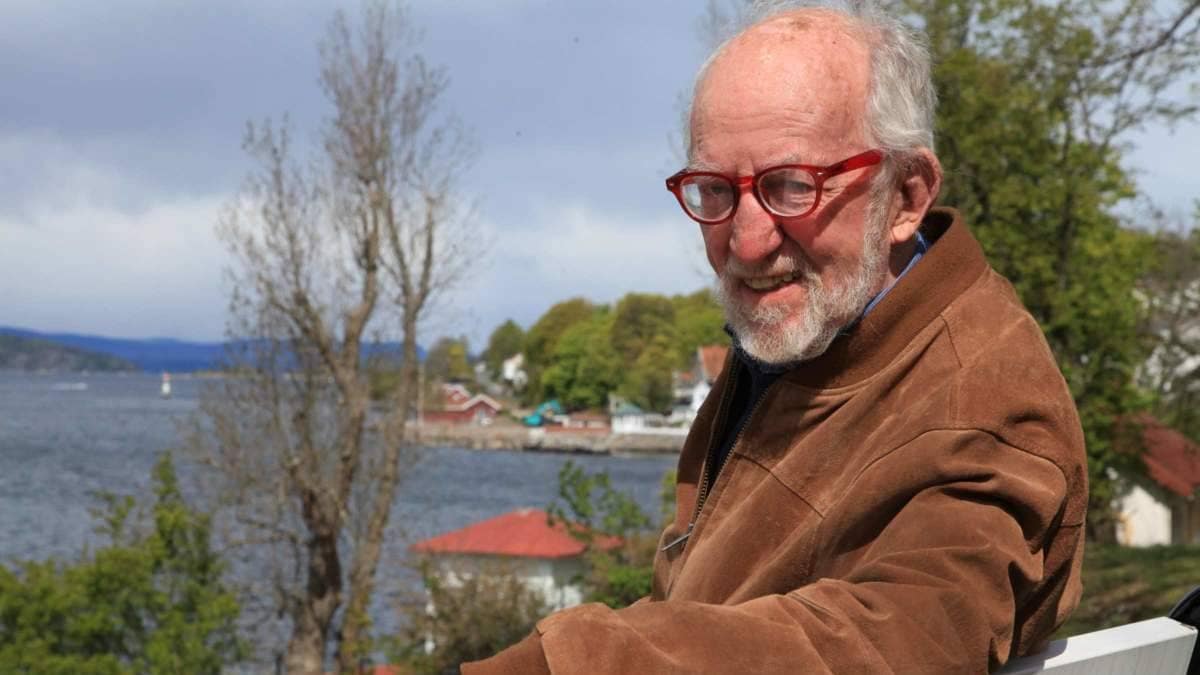A few months before the first official TV shows were broadcast in Norway, 24-year-old political scientist Tor Strand came to NRK. It was 1960 and the task was a temporary position in school broadcasting. Five years later, he moved to the foreign affairs department of radio, and it was there that he was to make his strongest mark. As NRK’s first correspondent in Moscow from 1968 to 1971, he made the world a little smaller for listeners and viewers, and NRK’s horizon a little bigger.
The contrast must have been great when he moved from the gray streets of the Soviet Union and strict press censorship to 1970s New York, with its bustling counterculture and open political debate. As a US correspondent, he had the Watergate revelations on his knees, at the time the biggest constitutional scandal in US history. It says a lot about his commitment and his capacity for work that Tor Strand, at the height of his busy life as a correspondent, wrote the book “Watergate – a political system in crisis” and published it as early as March 1974, five months before President Nixon resigned.
He completed a third period of correspondence in the mid-1980s, when he moved with his family to London. Anyone who met him in the field met a good and helpful colleague, very interested in politics, but also in history, literature and music. He read a lot and kept the joy of going to concerts all his life.
Between stations, Tor Strand took responsibility for the foreign television department. He began his perhaps most significant period at NRK when he became a television program director in 1987. Four years later he became a television director with ultimate responsibility for delivering programs to the television. Strand was aware of the competition from satellite and cable television early on and became a driving force for NRK to adapt and become more responsive to the wants and needs of the public. At the same time, it was clear that the requirements of independence, objectivity and balance had to be absolute.
Until recently, he was engaged in the course of the world. Tor Strand was a liberal humanist who watched with wonder and unease Trump’s United States and Putin’s Russia. The war in Ukraine evoked memories of his own childhood, when the German cruiser Blücher was sunk at Drøbaksundet during the invasion of Norway. Drøbak was bombed by German planes and the family had to flee. He left his mark on a boy barely four years old.
He also maintained his commitment to NRK throughout his life. As a Norwegian lecturer, he was outraged by any type of linguistic neglect. Then Tor Strand wrote articles in the newspapers, to keep his old workplace in his ears. The last contact we had with him concerned the publication of the audio piece he wrote and produced for the radio on “Kampen om tungtvannet”. It will be sent in June.
Thor Gjermund Eriksen, Broadcast Manager
The funeral will take place on Wednesday March 30 at 10:00 am in the church of Asker

“Web specialist. Social media ninja. Amateur food aficionado. Alcohol advocate. General creator. Beer guru.”







